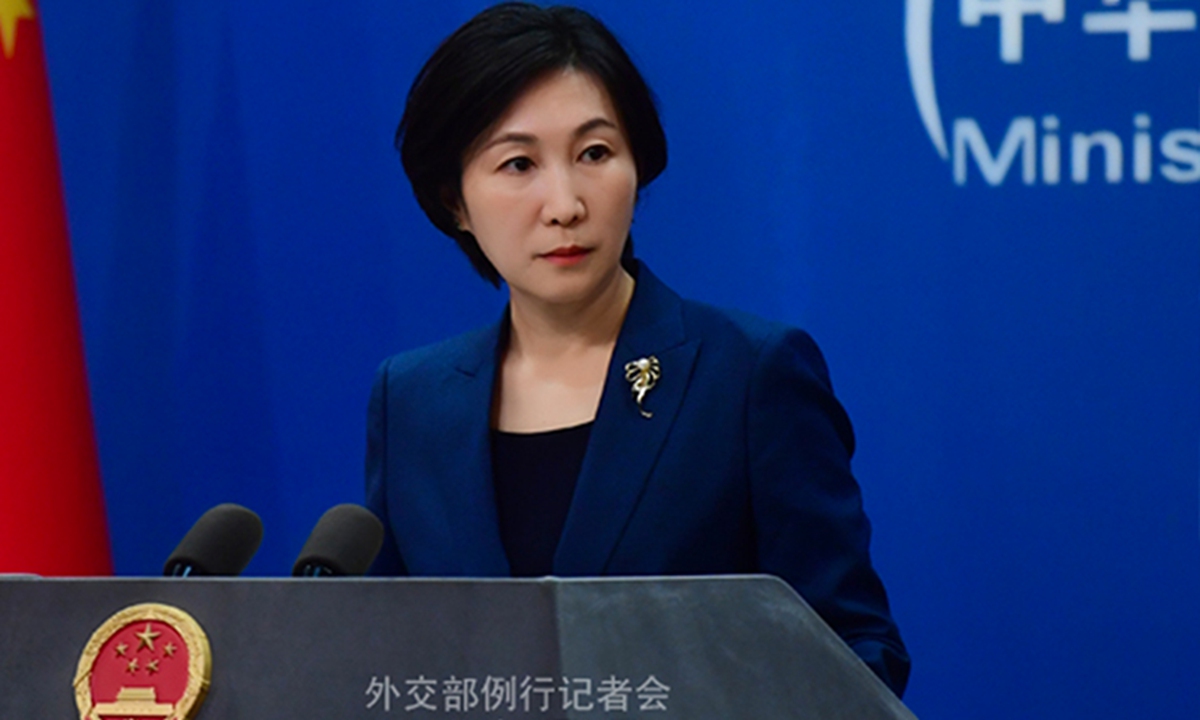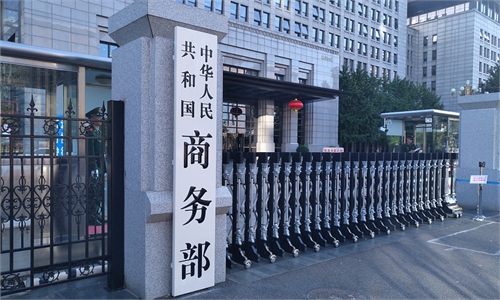Chinese FM warns 'all consequences shall be borne by the US' over signing of 'trade initiative' with Taiwan island

Foreign Ministry Spokesperson Mao Ning Photo: Ministry of Foreign Affairs
China's Foreign Ministry on Friday once again slammed the US over its signing of the first part of the "Initiative on 21st Century Trade" with the secessionist Democratic Progressive Party (DPP) authorities on the island of Taiwan, and warned that all the consequences will be borne by Washington.
The US and DPP authorities on Thursday (ET) signed an initial agreement under the "Initiative on 21st Century Trade" with talks on the agreement initially beginning in August 2022.
It does not cover tariff reductions or exemptions during the first stage agreement, but covers customs and trade facilitation, regulatory practices, domestic regulation of services, anti-corruption practices, and small and medium-sized enterprises, according to Taiwan-based media.
In response, Chinese Foreign Ministry spokesperson Mao Ning said that China strongly opposes official interactions of any form between China's Taiwan region and countries that have diplomatic relations with China. That includes negotiating or signing any agreement that implies sovereignty and has an official nature.
The US government has deliberately pushed forward negotiations with the DPP authorities in Taiwan on the so-called "Initiative on 21st Century Trade" and signed the agreement. This gravely violates the one-China principle and the three China-US joint communiqués, and contravenes the US's own commitment of maintaining only unofficial relations with Taiwan, Mao said.
China strongly deplores this and has made serious démarches to the US side, the spokesperson added.
According to Mao, the "initiative" is just a US tool to rip Taiwan off. "The DPP authorities, driven by the selfish separatist agenda, have no scruples to betray Taiwan compatriots and businesses' interests or sell Taiwan away. By signing the agreement, they are offering Taiwan to the US on a plate."
"This is the latest example of the US trying to fudge and hollow out the one-China principle," Mao said.
"We once again urge the US to abide by the one-China principle and the three China-US joint communiqués, immediately change course and stop official interactions of any form with Taiwan, stop pushing forward and revoke at once the so-called "Initiative" and agreement, and stop sending wrong signals to "Taiwan independence" separatist forces, otherwise all consequences shall be borne by the US side," Mao noted.
This is the second consecutive day that Mao has responded to the issue. Some observers on the island say the agreement is simply a hollow political statement, the empty content does not really benefit the island, especially at a time when Taiwan region's exports have been in negative territory for seven consecutive months. Experts from Chinese mainland said the deal has far more political than economic meaning.
Wang Jianmin, a senior cross-Straits expert at Minnan Normal University in East China's Fujian Province, told the Global Times on Friday that regarding the content of the agreement, it mainly deals with the aspects of interest to the US. The opening of the services market, tariff reductions or exemptions, which are key concerns of Taiwan, were not covered.
The agreement is mainly about US asking the DPP authorities to cooperate with its economic and trade system to contain the Chinese mainland, Wang said. "The benefits to Taiwan's economic development, trade and investment are extremely limited, so it has more political significance than economics."
According to Taiwan-based media, DPP authorities described the deal as the "most comprehensive trade agreement with Washington since 1979."
The DPP will fully use this agreement to trumpet the "warming relations" with the US, but it is actually a kind of "economic colonization" by the US, Wang noted.
A spokesperson of the Chinese Ministry of Commerce also expressed strong opposition to the US over the "Initiative on 21st Century Trade" on Friday.
"Taiwan is an inalienable part of China's territory. We urge the US side to abide by the one-China principle, prudently handle its economic and trade relations with Taiwan region and stop any form of official exchanges with Taiwan," the spokesperson said.



